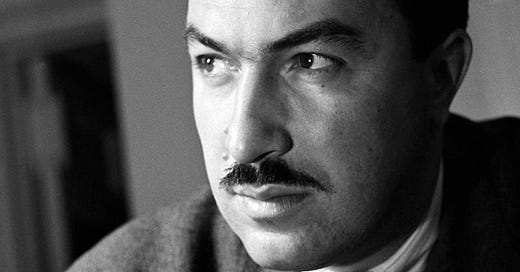Black Power From The Pulpit
Abyssinian Baptist Church and the Spectacular Rise of Adam Clayton Powell, Jr.
Located in Harlem, New York, Abyssinian Baptist Church was founded in 1808 when a number of its Black parishioners elected to leave First Baptist Church of New York due to it racial segregation practices. Reverend Thomas Paul, a Black minister from Boston, Massachusetts, was pivotal in providing leadership and support to the community of Black and Ethiopian immigrants in establishing the new church.
The church (which was named Abyssinian after Abyssinia, the ancient name of Ethiopia) has the distinction of being the first Black Baptist church in the state of New York. The Reverend John VanVessler served as its inaugural pastor.
In ensuing years, Abyssinian Baptist Church experienced meteoric growth, becoming a key epicenter of political activism in New York’s Black community. Due to soaring membership, the church was forced to move a number of times. In 1923 it settled into its present-day, neo-Gothic architectural location at 132 W. 138th Street in Harlem between Adam Clayton Powell and Malcolm X Boulevards. The church, erected of limestone, features ornate stained glass windows and a marble pulpit.
Among the canon of ministers that have led the church over the years are the father and son duo of Adam Clayton Powell, Sr. (1908-1936) and Adam Clayton Powell, Jr. (1937-1971). The latter Powell became particularly well known as a flamboyant and controversial congressman from Harlem, having been elected in 1944.
As chronicled in the book Adam Clayton Powell, Jr: The Political Biography of an American Dilemma, author Charles V. Hamilton notes:
“After a number of years — thirteen to be exact, from 1909 when he first arrived in New York to 1922 — the Reverend Adam Clayton Powell, Sr. realized his dream of moving a Abyssinian Baptist Church to Harlem from its Midtown location on W. Fortieth St. On April 9, 1922, an elaborate ground-breaking ceremony was held that would lead to the construction of the huge Gothic and Tudor style church, the largest such structure owned by blacks in America. Powell Sr. had wanted to move the church because Harlem was fast becoming a community filling up with black migrants from the South in the West Indies. This was the place to find new parishioners. this was the post — World War I future of black New Yorkers.”
Upon the retirement of Rev. Powell, Sr around 1936, his son Rev. Adam Clayton Powell, Jr. became pastor and leader of the church. But as Hamilton adds, this move was not without controversy:
“ When Powell Sr. tried to retire in 1935, his intention was rejected by some in the church because they simply were not ready for Powell Jr., and there might be a way to circumvent his succession if there were more time. Rumors circulated throughout Harlem that some Abyssinians were so set against the son that the church would erupt in an open split. But ultimately this did not happen. The father wanted to retire; he wanted his son to succeed him. And on November 1, 1937 Adam Clayton Powell Jr. became the new senior minister of Abyssinian Baptist Church.’
The young Powell Jr’s years as pastor were symbolized by outreach to the local community during the Great Depression era. He later brought a great deal of media attention to Abyssinian as a result of his election to Congress in 1944. The first to represent Harlem and the 22nd District of New York, he continued to serve as pastor, using the church as a pulpit for his outspoken views on equal rights and social justice. In 1965, Reverend Dr. Martin Luther King, Jr. was the invited guest speaker for Abyssinian’s 157th church anniversary.
Among the milestones of Powell, Jr’s twelve-term tenure in Congress was his leadership in igniting civil rights activism to bring awareness of discrimination in jobs and housing.
Thirty years ago in 1993, Abyssinian was designated as an official city landmark by the New York City Landmark Preservation Commission. Today the church continues its long history of community engagement and social activism.
“Black Books, Black Minds” is a key foundation of my Great Books, Great Minds” passion project. For me, it’s a labor of love fueled by the endless hours of work I put into researching and writing these feature articles. My aim is to ignite a new world of community, connection, and belongingness through the rich trove of Black History books, thought leaders, and authors we unearth.
So if you are enjoying this digital newsletter, find it valuable, and savor world-class book experience featuring non-fiction authors and book evangelists on Black History themes, then please consider becoming a paid member supporter at $6.00/month or $60.00/year. Large or small, every little bit counts.





